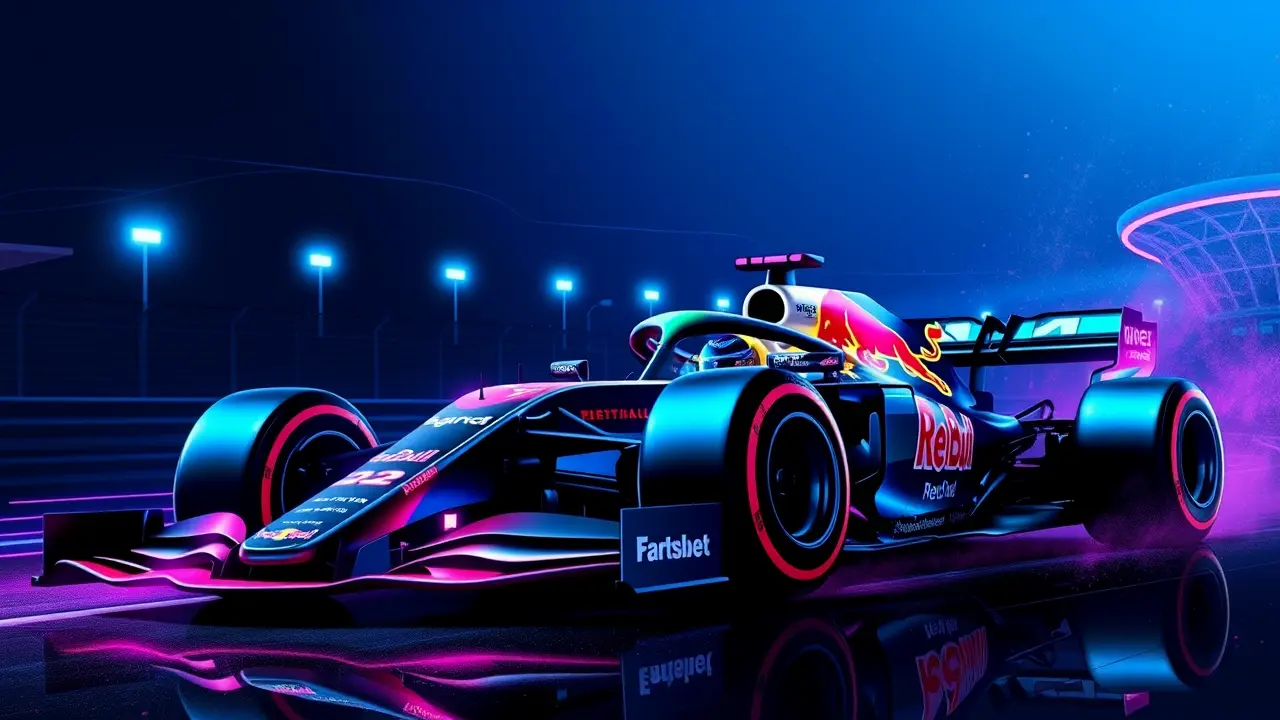Giedo van der Garde criticizes Yuki Tsunoda's Singapore GP performance.
The high-stakes, high-pressure world of Formula 1 is a crucible where careers are forged or broken in the space of a single lap, and for Yuki Tsunoda at the Singapore Grand Prix, the fire proved too much to handle, drawing sharp, unflinching criticism from former F1 driver Giedo van der Garde. In a sport where milliseconds separate glory from obscurity, Tsunoda’s performance was a masterclass in how quickly things can unravel, a stark reminder that raw speed is meaningless without the mental fortitude to harness it under the blinding lights of Marina Bay.Van der Garde, speaking on Viaplay, didn't just analyze the race; he performed a post-mortem on a driver's confidence, describing the Japanese driver as 'completely lost' after a first lap he himself labeled 'the worst of my life. ' This wasn't merely a bad outing; it was a systemic collapse.The statistics tell a brutal story: being lapped by his own teammate, Daniel Ricciardo, is a humiliation of the highest order in the pinnacle of motorsport, a data point that screams of a profound performance gap. It’s the equivalent of a star striker being outscored by his own team's defender—a fundamental breakdown of role and expectation.Van der Garde pinpointed the body language in the post-race interview as the most damning evidence, noting Tsunoda's inability to articulate a coherent explanation or even maintain eye contact, a tell-tale sign of a pilot adrift without a navigational fix. This goes beyond a simple technical failure or a wrong setup; this is a crisis of belief, a chink in the psychological armor that drivers like Ayrton Senna or Michael Schumacher wore as impenetrably as their fireproof race suits.For Tsunoda, a product of the ruthless Red Bull driver academy, the specter of replacement looms larger than ever. The program, famous for its 'sink or swim' ethos, has chewed up and spat out talents before, and the commentary from figures like Sam Bird, who suggests Tsunoda's departure is merely 'a question of time,' adds fuel to a fire that is already threatening to consume his seat.The Singapore circuit, with its torturous, humid 23-turn layout, is a physical and mental marathon, and Tsunoda’s collapse there echoes past drivers who faltered under similar pressure, whose careers never recovered from a single, catastrophic weekend. The broader context here is the cutthroat nature of the midfield, where teams like VCARB (formerly AlphaTauri) are fighting for every championship point and cannot afford a driver who is not only slow on the day but visibly shattered by the experience.The consequence of this performance isn't just a zero in the points column; it's a erosion of trust from the engineering team, a questioning of his long-term viability, and a potential trigger for Red Bull's notoriously trigger-happy management to look toward the next prodigy in their pipeline, perhaps even promoting from their formidable junior series mid-season. To overcome this, Tsunoda must do more than find a few tenths in the simulator; he must embark on a journey of mental reconstruction, mirroring the comebacks of drivers like Daniel Ricciardo himself, who had to rediscover his mojo after his own career setbacks. The road back starts with that long, hard look in the mirror van der Garde prescribed, but the question remains: does Yuki Tsunoda have the strength to stare into the reflection of his Singapore failure and see not an ending, but a brutally difficult new beginning?.
It’s quiet here...Start the conversation by leaving the first comment.
© 2025 Outpoll Service LTD. All rights reserved.
